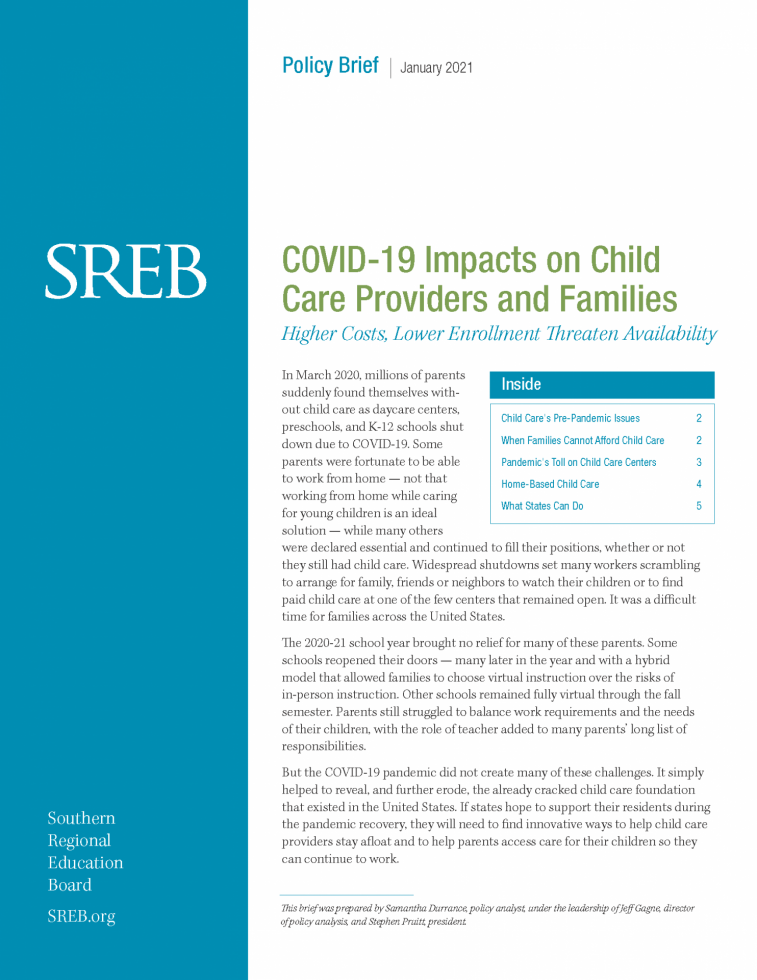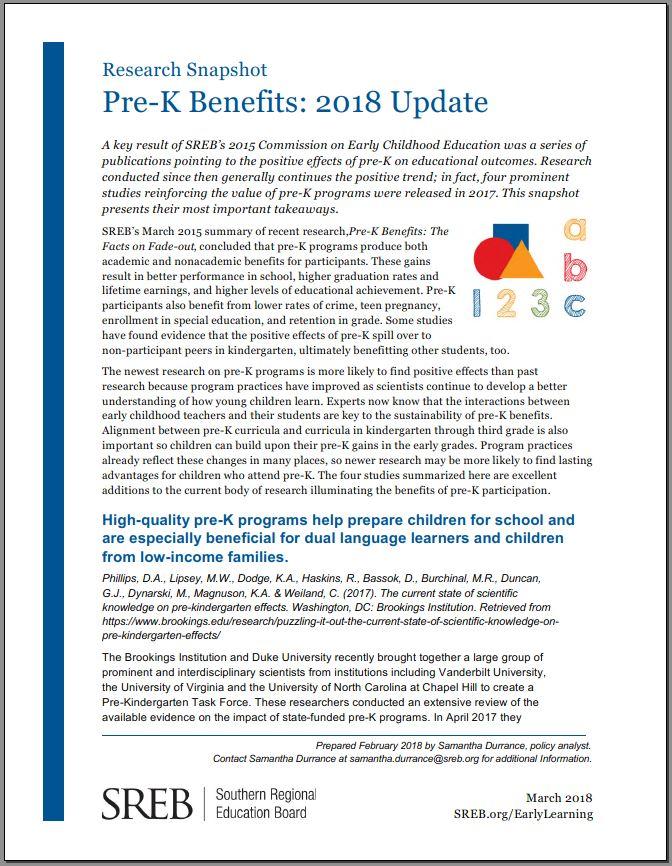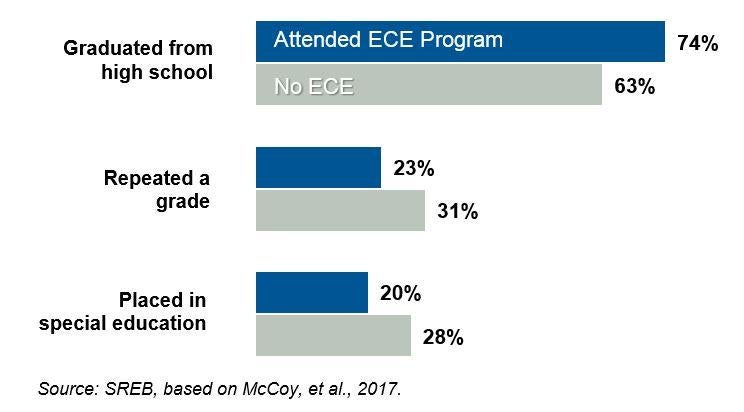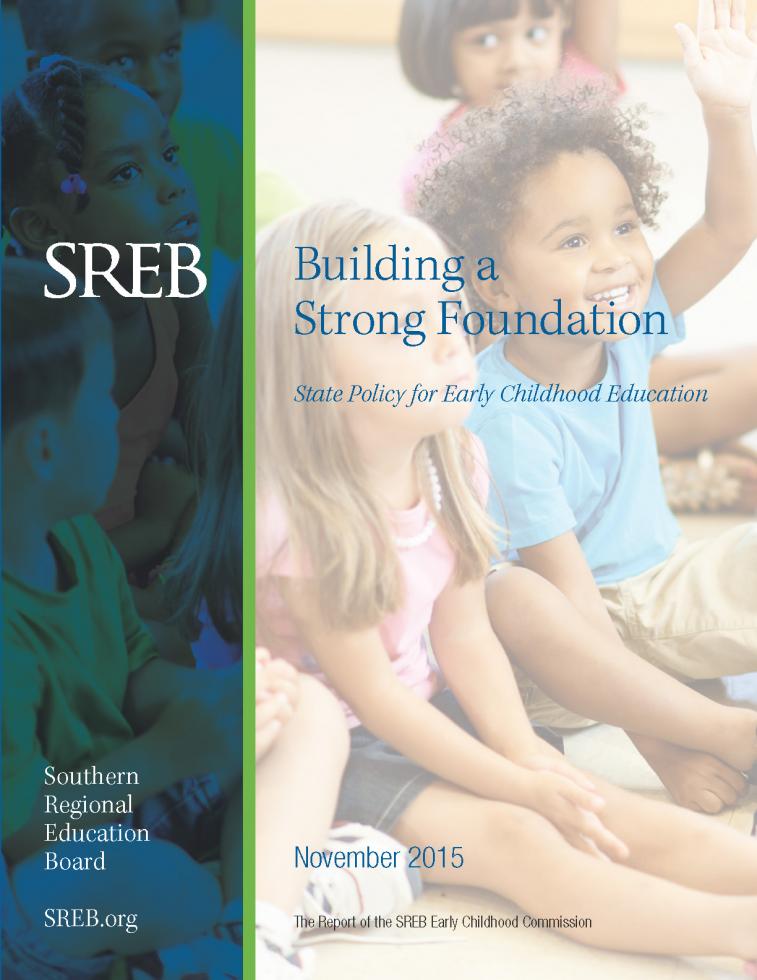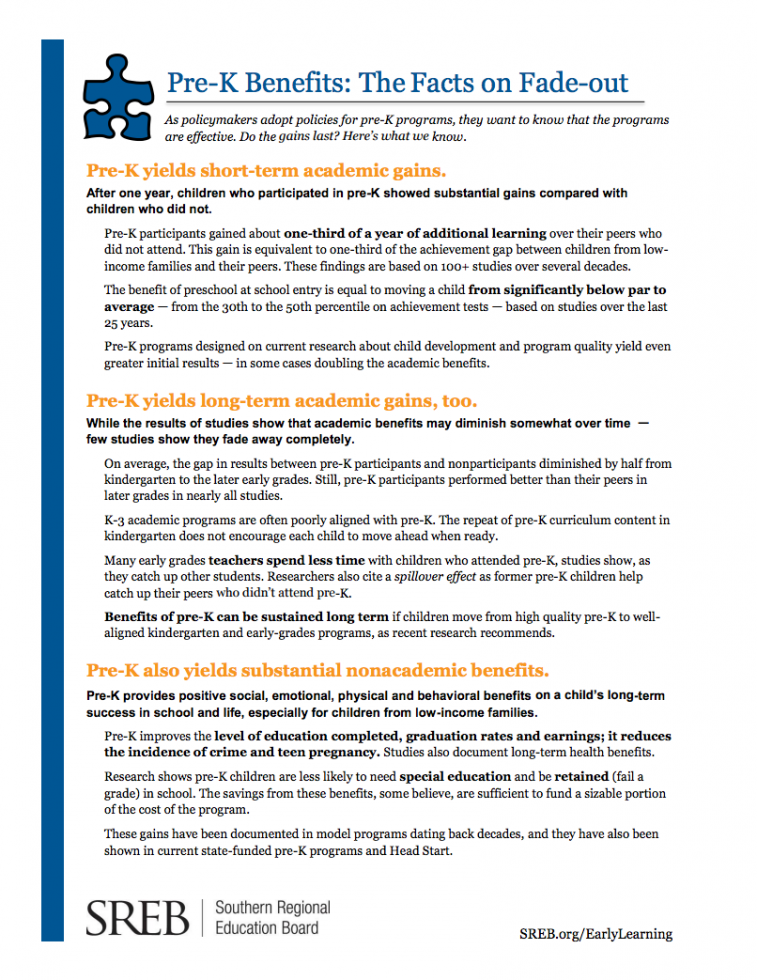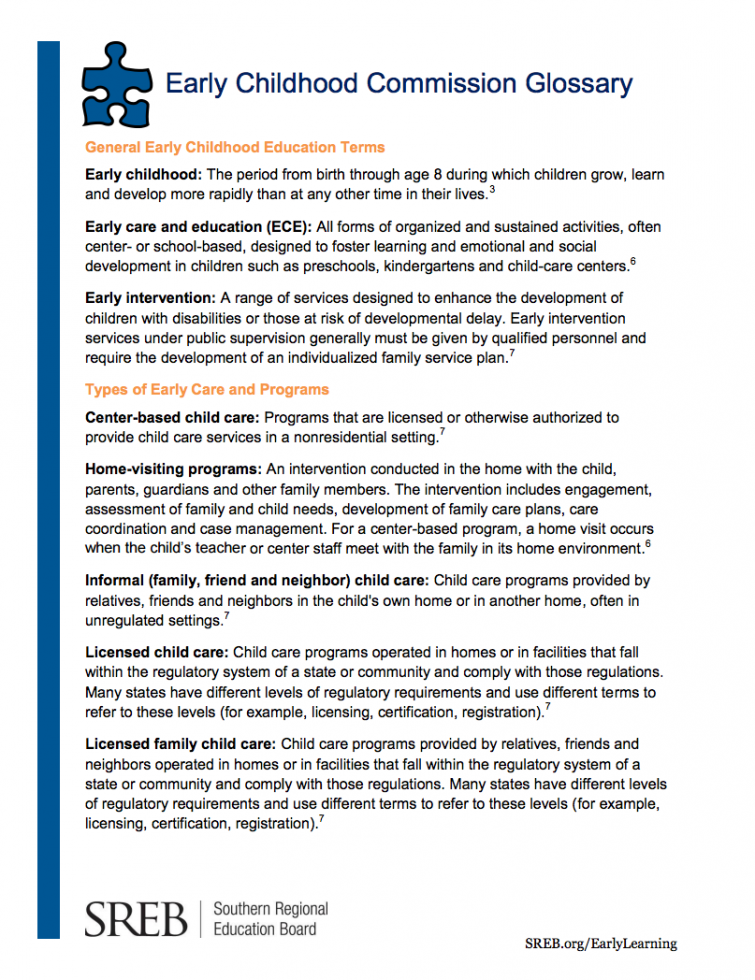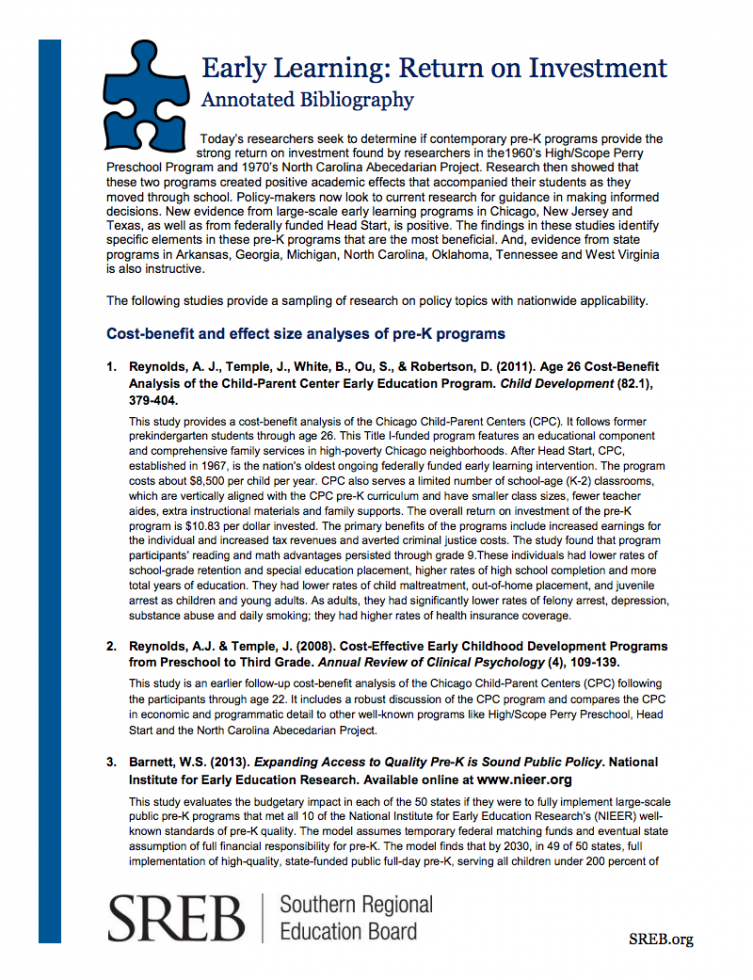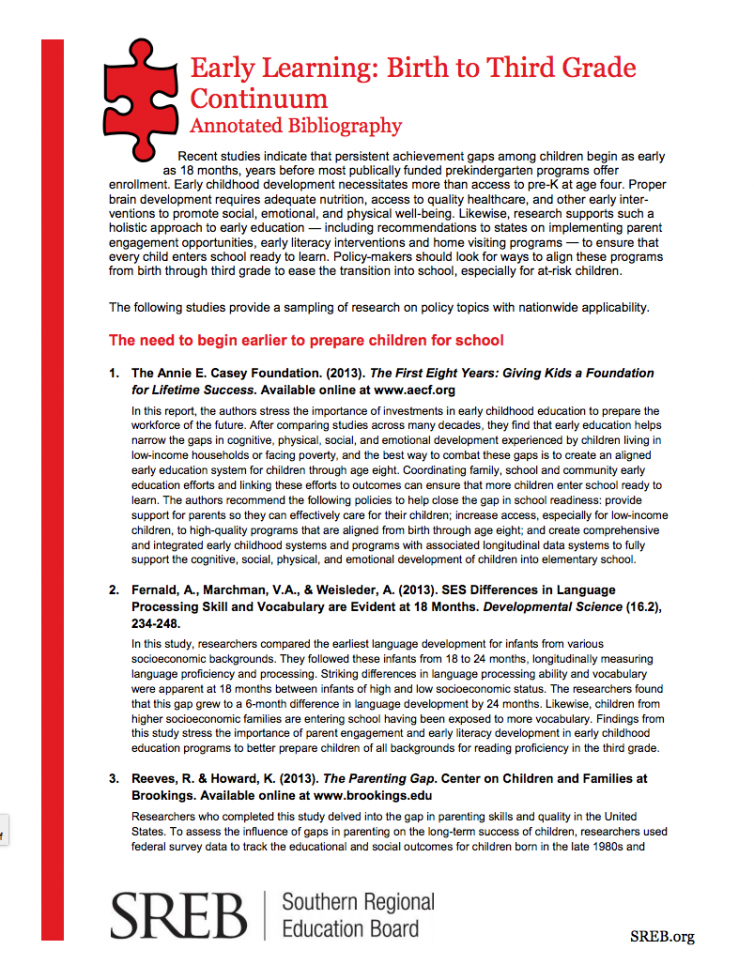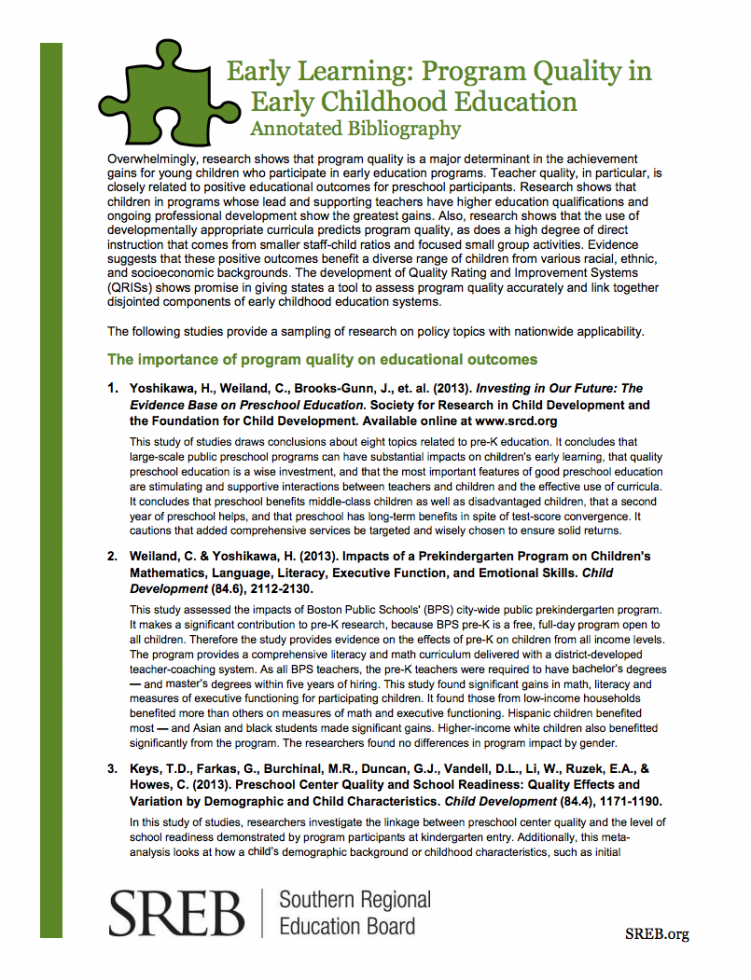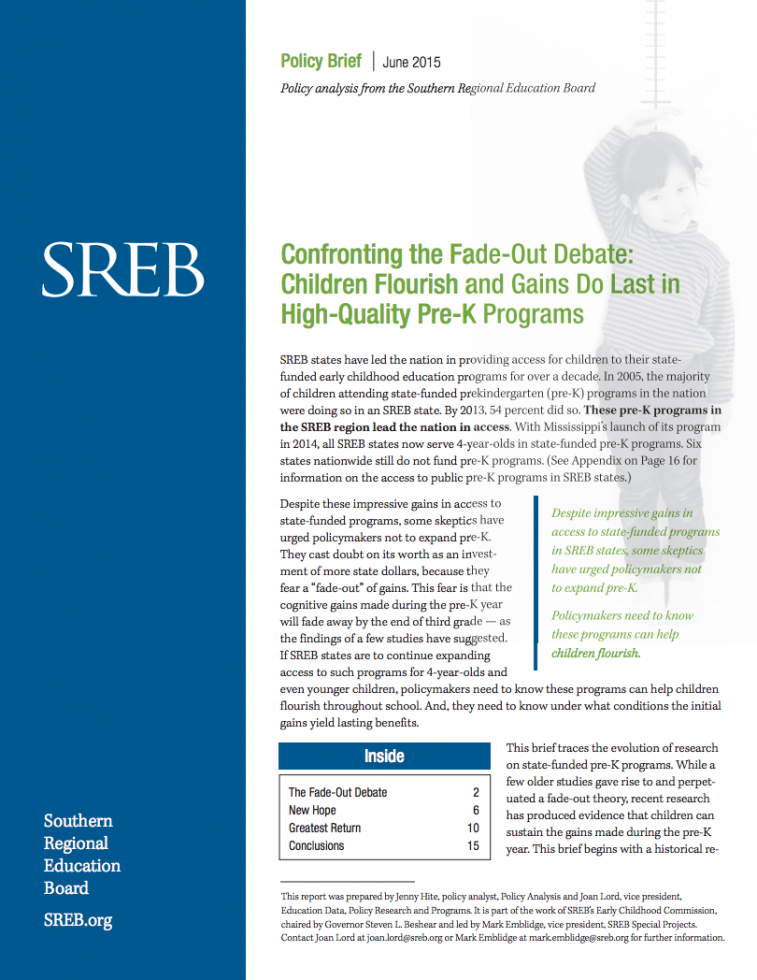Education Level: Early Childhood
Early childhood
Birth to 5 years
The path to success in school and life begins in the critical years between birth and age 5. Family, community and school all play significant roles in making sure children enter kindergarten ready to learn.
25 actions to improve early childhood education
 To build a sound educational foundation for all children, state policy should center on high-quality programs with great teachers. States should also address governance, accountability and access.
To build a sound educational foundation for all children, state policy should center on high-quality programs with great teachers. States should also address governance, accountability and access.
Recommendations of the SREB Early Childhood Commission >
COVID-19 Impacts on Child Care Providers and Families
Higher Costs, Lower Enrollment Threaten Availability
The COVID-19 pandemic has revealed—and exacerbated—challenges affecting our nation’s child care system. Many child care operators have struggled financially as they deal with shut downs, lower enrollments and increased costs.
Pre-K Benefits: 2018 Update
Research Snapshot
This snapshot summarizes important takeaways from four research studies published in 2017 that reinforce the value of pre-K. High-quality pre-K programs help prepare children for school, especially dual language learners and children from low-income families. Head Start programs can disrupt the cycle of poverty. And pre-K shows effects on outcomes such as math achievement and the likelihood of graduating from high school.
New Research Points to Continued Promise of Pre-K
Researchers continue to examine the long-term impacts of pre-K participation, and more sophisticated methods and better data may help solidify the consensus that has already emerged: investing in early childhood education plays an important role in preparing young children for success in the early grades and pays off in the long run.
Early Childhood Education
State Policy Recommendations
The report of the SREB Early Childhood Commission
Building a Strong Foundation: State Policy for Early Childhood Education
The Commission calls for states to raise the quality of early
education programs and ensure they are well-coordinated across
different agencies and budgets.
The recommendations cover wider access and accountability for
results. The report also sheds light on the need for a statewide
policy framework to bring together public and private funding
currently spread across agencies and budgets.
Pre-K Benefits: The Facts on Fade-out
As policymakers adopt policies for pre-K programs, they want to know that the programs are effective. Do the gains last? Here’s what we know.
Early Childhood Commission Glossary
Glossary of terms related to early childhood education, pre-K and child care. Includes key early childhood organizations, types of programs, and terms related to quality, accountability and assessment, statewide alignment, federal programs and funding sources, teacher quality, and family engagement strategies, plus sources. Compiled by SREB staff for SREB’s Early Childhood Commission
Early Learning: Return on Investment
SREB Annotated Bibliography, 2014
Findings in these studies identify specific elements in pre-K programs that are most beneficial. Evidence from state programs in Arkansas, Georgia, Michigan, North Carolina, Oklahoma, Tennessee and West Virginia is also instructive.
- Cost-benefit and effect size analyses of pre-K programs
- Catch up vs. fade out: Do pre-K’s positive effects persist through K-12?
- Evaluations of pre-K programs in SREB states
Early Learning: Birth to Third Grade Continuum
SREB Annotated Bibliography, 2014
Recent studies indicate that persistent achievement gaps among children begin as early as 18 months, years before most publicly funded prekindergarten programs offer enrollment. Likewise, research supports such a holistic approach to early education to ensure that every child enters school ready to learn. Policy makers should look for ways to align programs from birth through third grade to ease the transition into school, especially for at-risk children.
Early Learning: Program Quality in Early Childhood Education
SREB Annotated Bibliography, 2014
Overwhelmingly, research shows that program quality is a major determinant in the achievement gains for young children who participate in early education programs. Teacher quality, in particular, is closely related to positive educational outcomes for preschool participants. Also, research shows that the use of developmentally appropriate curricula predicts program quality, as does a high degree of direct instruction that comes from smaller staff-child ratios and focused small group activities.
Confronting the Fade-Out Debate
Children Flourish and Gains Do Last in High-Quality Pre-K Programs
This brief traces the evolution of research on state-funded pre-K programs. While a few older studies gave rise to and perpetuated a fade-out theory, recent research has produced evidence that children can sustain the gains made during the pre-K year.
Leaders from Southern states push to improve early education
Our understanding about early childhood development has grown by
leaps and bounds in recent years. New brain research tells us
that children’s brains form very rapidly early on, and their
earliest experiences have lifelong effects on their likelihood to
succeed.
Now it’s time to put what we’ve learned into practice so that our
young children get the best start possible.
The Critical Infrastructure of Early Learning
Birth to Books
What happens in a child’s first three years of life has deep and
long-lasting implications for success in school and life. Studies
show that how many words children are exposed to by age 3, their
mothers’ education level, and the stress of poverty are huge
factors in whether or not they are ready for kindergarten at age
5.



